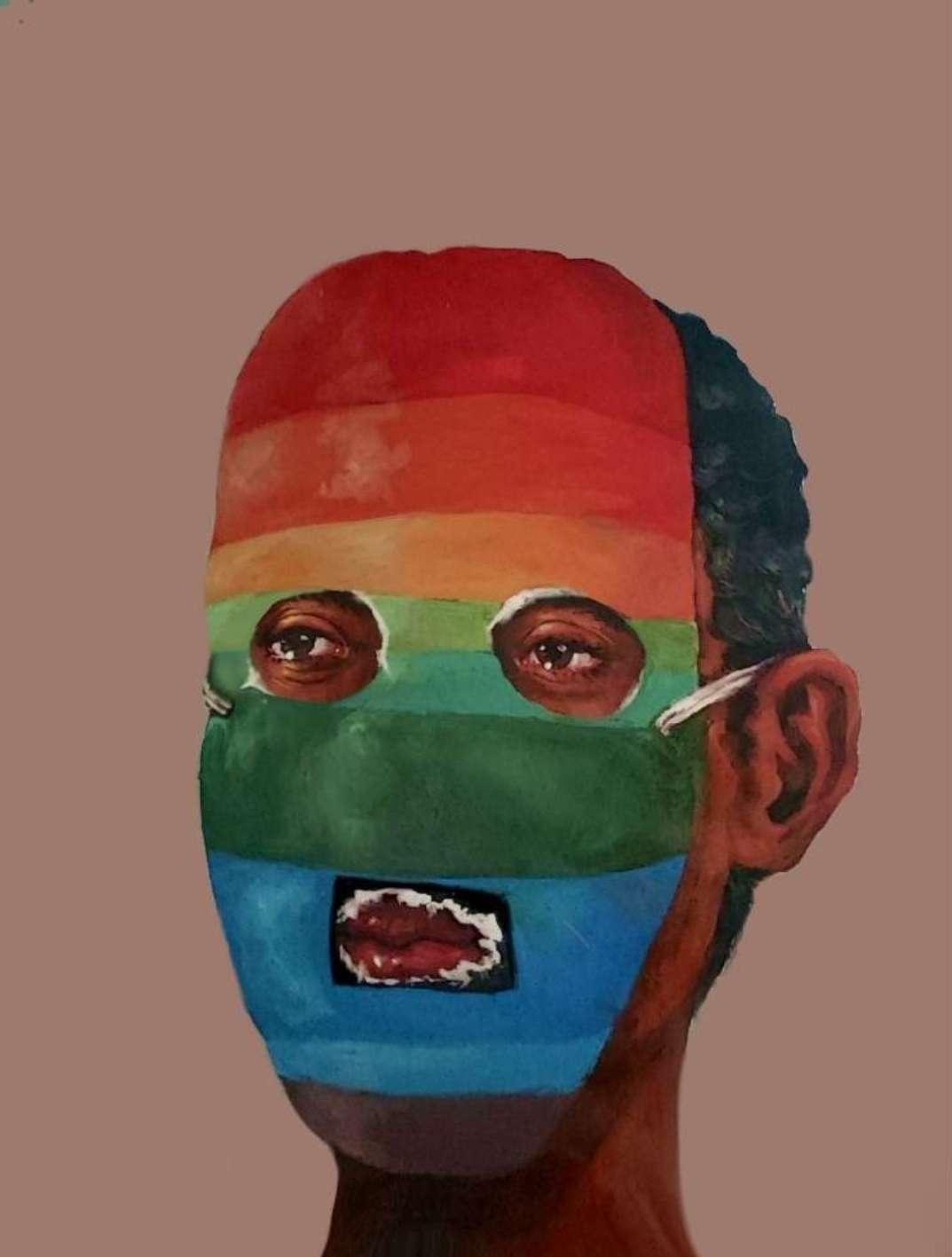TUSKANTIMES
VOLUME 11 ISSUE 5


VOLUME 11 ISSUE 5

CREATIVE
CHAOTIC CHIARA
JOURNEY OF LOVE, PART 3
FOREST LIVING
SHOES ON THE DANUBE BANK
POLITICAL
9/11: THE USA'S RESPONSE
ISRAEL'S WORST VIOLENCE IN A LONG TIME REMILITARIZATION OF GERMANY AN UNJUST JUSTICE SYSTEM UGANDA'S
ISCIENCE&TECHNOLOGY

STHE UNIVERSE BREAKERS
CULTURE
ITHE LUDDITE CLUB NATTY OR UNNATTY?
This is a mix media watercolor painting inspired by the story “Forest Living” by Amelia W Over the years the covers have been inspired by articles, primarily political ones. The Tuskan Times editors and staff wanted to expand our scope and finally have a cover that represents our writers creative visions EVALINGOULDER'24

This art piece was inspired by one of the protestors in Uganda They were forced to hide their identity out of fear of being subject to unjust laws EZRAPAVONCELLI'25

Dear Readers,
The Tuskan Times is back for our 5th and penultimate edition of the school year! We are excited to share the hard work of our amazing team of writers, designers, artists and editors!
This issue contains a range of different articles, from an analysis of Israeli violence and foreign relations by Raya Gupta to an update on recent findings from the James Webb Space Telescope by Liam Barbieri. We are also proud to showcase some of the amazing creative writing work of our Middle and High School students, including the third chapter of ‘Journey of Love’ by Georgia Dick.
In the coming issues, we will be focusing on widening the reach of the Tuskan Times by including more articles in other languages to highlight the international nature of ISF, as well as by including more work from the Junior School, which you can find under ‘Junior School Nook’. Make sure to read Ming Hao Dai’s Triangolo di tristezza’ under the Opinion section, as well as a short piece detailing the Cantabile Choir’s trip to Napoli under ‘Local’!
Once again, I’d like to thank all our writers, editors, artists and designers, as well as our supervisor, Ms. Hitchcock, who have all played an important role in bringing this issue to life.
Thank you for reading!
Devaki Menon Editor-in-ChiefEDITOR-IN-CHIEF
DEVAKI MENON
ASSISTANT
EDITORS-IN-CHIEF
OLIVIA DICK
ELENA SOFIA UZIELLI
HEADOFLAYOUT
LEELA MENON
SUPERVISOR
TESS HITCHCOCK
EDITORS
CRISTIAN ARGENTO
OLIVIA DICK
RAYA GUPTA
ELENA SOFIA UZIELLI
LEELA MENON
ALISIYA ERMOLENKO
LIAM BARBIERI
DEVAKI MENON
ART
EVALIN GOULDER
EZRA PAVONCELLI
LAYOUT
LEELA MENON
OLIVIA DICK
ELIOT RICHARDS
DEVAKI MENON
ELENA SOFIA UZIELLI
MIDDLESCHOOL COORDINATORALLEGRA
DI FLORIOE E T T H E T E A M

In this section of the issue, our writers explore topics related to ISF and our community as a whole



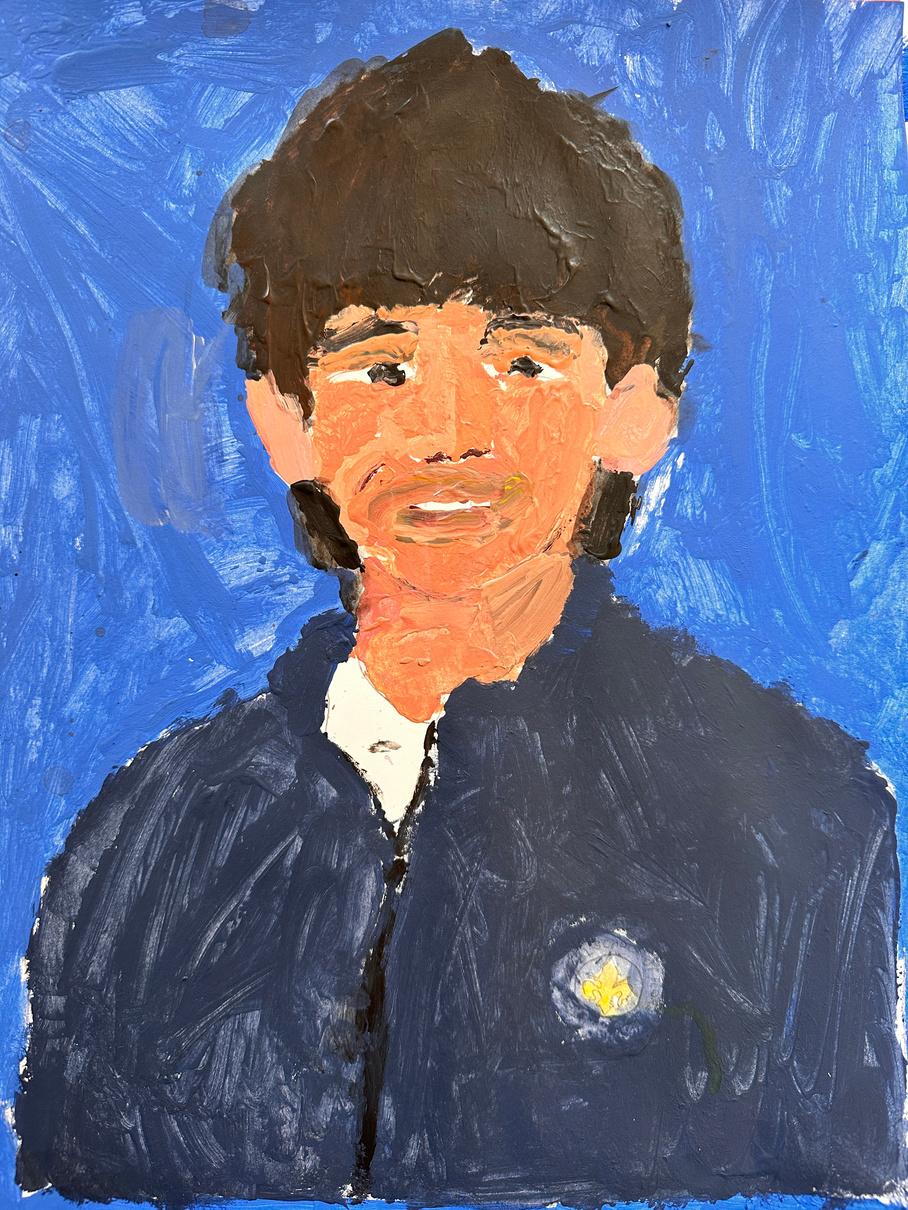





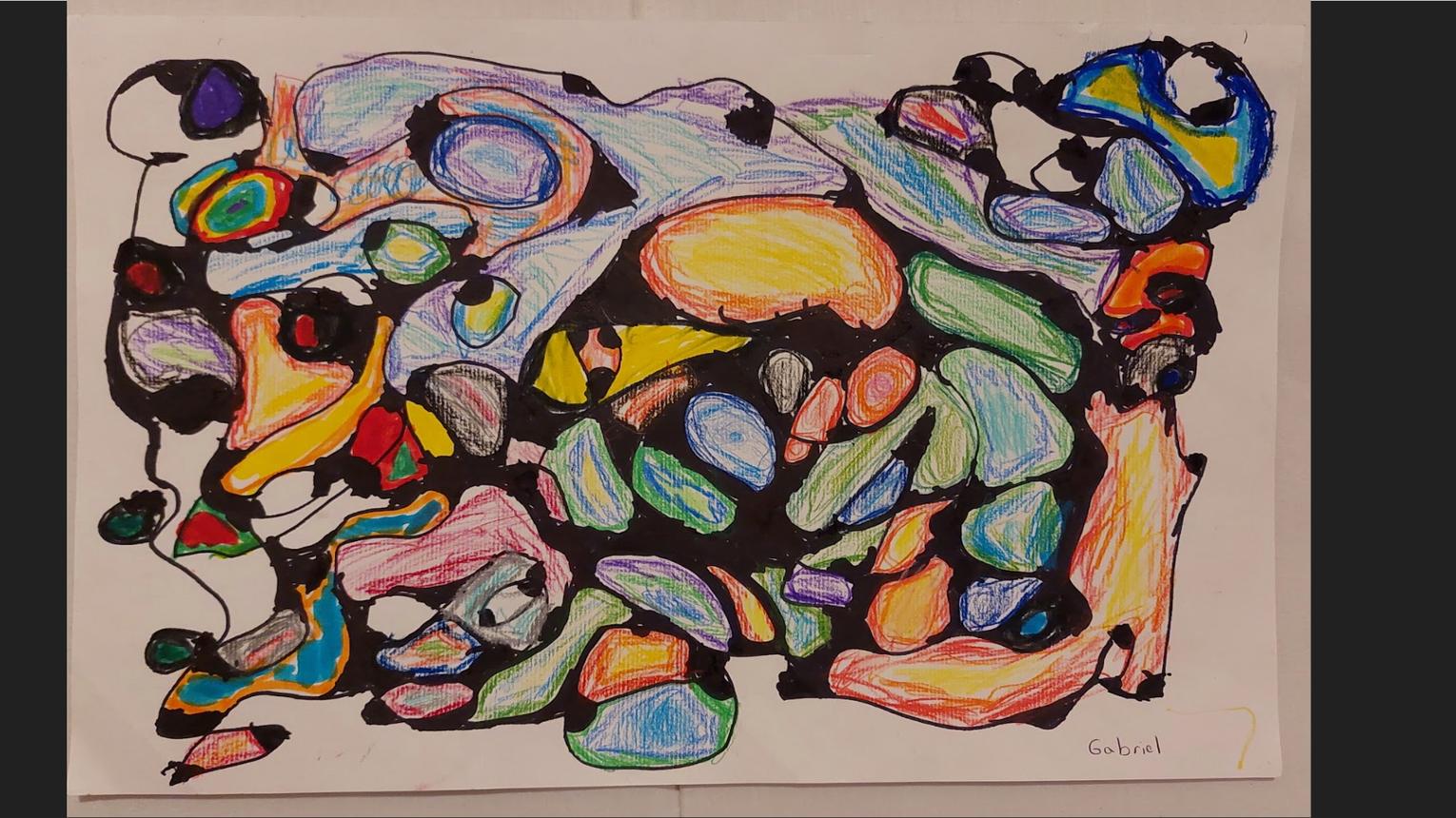


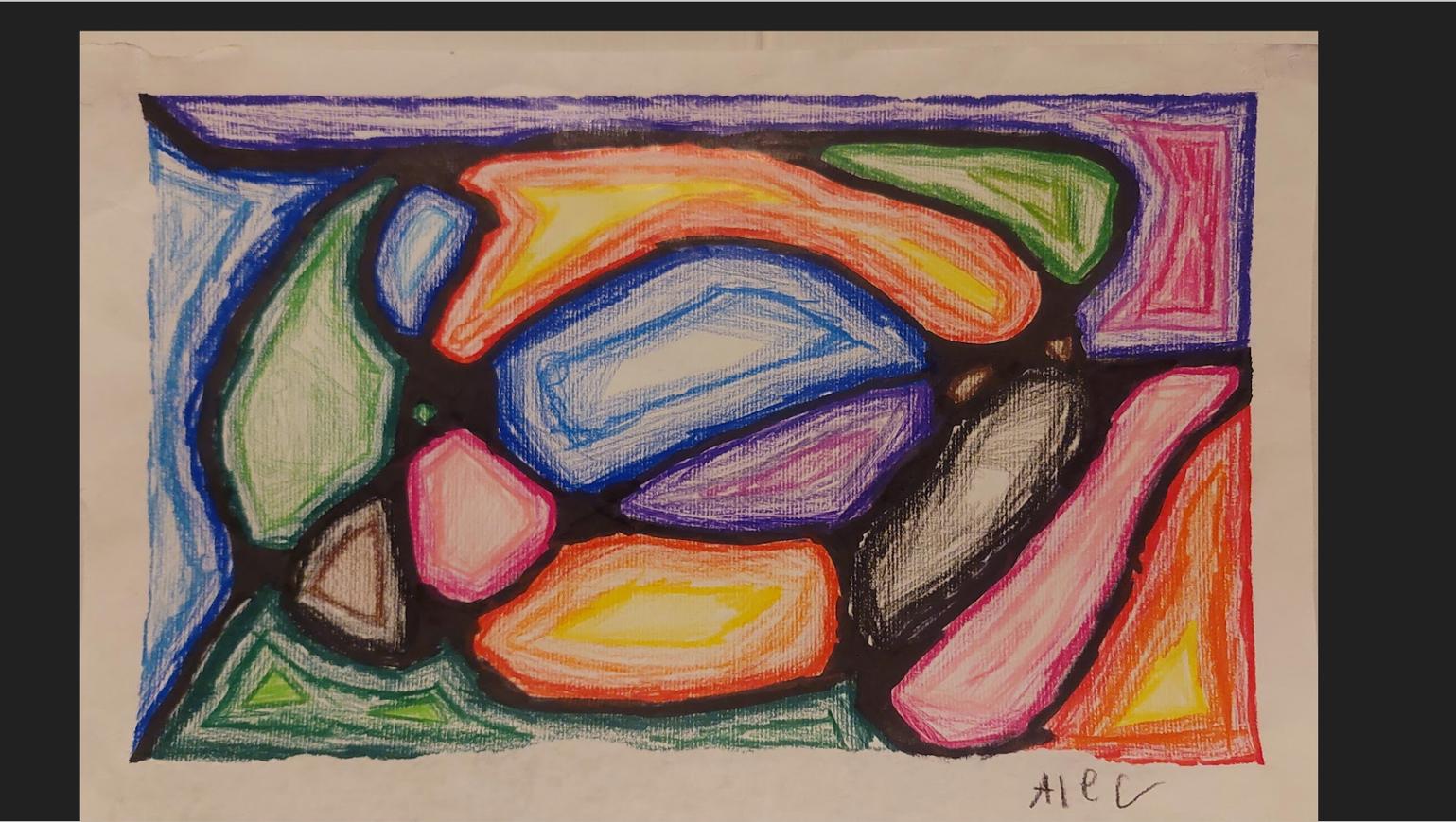




ISF Cantabile Choir was thrilled when Miss Tanja Kustrin, our choir director, announced that we were going to perform at the world renowned Teatro San Carlo in Naples In the preparation of this huge project, every choir member received a book “The Magic Flute” that helped us understand the story which inspired the composer W. A. Mozart. During our rehearsals, we learned that opera is a very complex form of theatre in which music is fundamental. We had to know ten very good areas and we had to decide which character from this story we would like to represent It was very exciting to make our costumes Everyone showed a great creativity and it inspired us The organizer of this beautiful project ”Scuola inCanto,” created an app with music notes and lyrics so that we could practice all ten songs in Italian language also at home.

The trip started on April 18 and we stayed in Naples for three days. During our visit, we had the opportunity to explore the historical center with a tourist guide We also visited the International School of Naples Our performance at Teatro San Carlo was definitely the highlight of the trip The ISF Cantabile Choir had a fantastic opportunity to sing alongside professional musicians and singers with the orchestra. We had a chance to be on the stage and to see what happens behind the scene. Some of us have been nervous, but everything went very well. We heard a huge applause at the end, and we saw that the audience liked it very much Performing in San Carlo was a great opportunity to raise our voices in front of a crowd We will never forget this event!




 By Valentina Marin '27
By Valentina Marin '27
I always loved school. I was always so fond of coming to school everyday to learn new things, to see my classmates, my friends, and my lovely teachers When I first moved to Rome, and started at ISOR (International School of Rome), I wasn’t much of the popular type. But that didn’t bother me because I had my best friend Chiara who I have been friends with since I first started in 5th Grade. Chiara and I didn’t really interact with anyone else We had each other, and that was all we needed Chiara and I might have seemed shy, quiet, and introverted to the other people in our grade, but trust me, when it’s just us two, we’re crazier than two chimpanzees jumping up and down on a bed She’s my best friend, and I love her more than anything in this world
But things changed in 8th Grade Chiara became obsessed with posting on Instagram and putting all this make up on her face. I don’t understand why she does that. She has long, gorgeous, wavy, ginger hair, the cutest freckles, long eye lashes, and green eyes. Why would she want to change that? Chiara was so naturally beautiful that sometimes I would be jealous of her beauty I wanted her long eyelashes and skinny body. But I am stuck as a dark brunette with hair as straight as a ruler, acne all over my face, dry lips, and short eyelashes. Chiara started to talk to the popular girls in our grade. Girls such as Amelia, Isabella, and Sofia, who came to school every day with a face full of contour, concealer, foundation, eyeshadow, bronzer, and the list goes on, and on, and on. To be honest, I felt left out. Most break times, Chiara would just be walking and talking to me, when Sofia would call her over and she would say, “See you later Petra," and run over to those girls all smiley and going straight into a hug She wouldn’t even bother to ask if I wanted to join So I spent my snack and lunch time in the library. It did bother me; I missed Chiara and she no longer talked to me. Every morning as I would walk up to school, passing that friend group of girls, they would all just stare at me What was their problem? Did my hair not look pretty today? Were they looking at all my ugly acne? Were they gossiping about me? Somehow my overthinking self, thinking about what they thought of me, bothered me more than any mean comments Although they never did say anything mean to my face, I was constantly worrying about what they have to say about me Was Chiara also apart of it? Was she talking about me?
It wasn’t just the fear of what they thought about me. Chiara was always hanging out with them. After school meetups, meeting for coffee, sleepovers, and beach trips. She would always be posting things like #besties and tag a bunch of people to her stories She would even meet up with the popular boys in our grade. My fear of missing out got worse than ever, and every time I would see all these cute photos on Instagram that they would post… it got pretty bad. I now hated school and because of this, I was anxious every single day and was no longer the self I was before 8th Grade I miss that person The person I used to be.
As soon as I realize it I quickly get up and run to the castle gates. Open.
They’re never open I scream
“Why do they make me do this?”
Thomas starts to approach me. Wait with HIM. No, no, no, that is even worse than alone.
I hate these stupid quests my parents make me go on Clara walks up to me, hands me my pack with a scroll explaining what we have to do and gives me a hug. I’ve never really liked hugs or just any physical contact but this is something I savored
“Listen I know how much you hate me and these quests but when we were younger we had so much fun on these. So please can we forget the past and move on? A new chapter?” Thomas says with a tender voice.
“You're an imbecile ” I say, tears in my eyes I raise my hand as an impulse but I stop This isn't me, I don't do this I need to snap out of it
I fall to my knees and Thomas follows. He puts his hand on my back rubbing me, making sure I'm ok. I start weeping uncontrollably Thomas pulls me in closer I hear his heartbeat
“Thanks” I say in a sniffle.
“You’re welcome… and just so you know I'm really sorry my father made me object during your coronation. You are a perfect princess ”
“I-it’s alright.” I take a deep breath in.
“I hope you're ready for the quest.” Thomas says with a soft tone.
“Me too ”
This has me twisted… why would Thomas only now start to be nice to me?
I wobble back to my room and flop onto the bed. I let out a sigh, and then a gasp. I have to get out of here!, I think to myself I start frantically packing All the things I need, some clean clothes I can run in, a compass and my sword. Thomas walks in.
“What are you doing here?” I say in a confused voice
“Why are you packing?”
“I'm leaving.”
“I’m coming with you,” he says in a hushed voice “I don't care what you say ” My cheeks turns as red as a tomato
“Fine” I say, trying to cover my face so he doesn't notice I’m blushing. He helps me gather everything we need to get out and away from this horrid kingdom
He opens a window and holds out his hand to help me descend.
“Ladies first” he says in an awful British accent. His smirk is so smug. Why is he being so nice?
Suddenly my foot slips and I almost fall but he grabs me by the waist We both blush awkwardly
“O-Ok you can let go of me now.” I stutter.
“Right,” he says, scratching the back of his head I can tell he's blushing and is really embarrassed He's so cute when he's embarrassed.
As I move cautiously down the rope we made from blankets and sheets, I realize what happened. Does he have a crush on me? No, no, probably just a mistake. I was so mean to him as a kid, how could he like me?
I plop onto the ground and wait for Thomas His boots thud against the soft grass and we start running towards the woods. While running Thomas grabs my arm and gives me a pull.
“We should find somewhere to stay. I think there's an Inn and it is not far from here.”
“Alright, let's go”
We start walking to the Inn when I start to feel a little cold. I hear Thomas behind me. He's always been a faster navigator than me.
Our first quest we went on was almost fun We sat in the rain as little 12 year olds looking at the stars eating the chicken Thomas had shot with his fathers bow and arrow. Earlier that day we were walking on some rocks and I had hurt my knee, so he was the one in charge of dinner while I rested and organized our camp site I hated being hurt, I felt useless But Thomas wouldn't let me get up He's such a mom
My teeth start to chatter. Thomas gives me a look
“Vi, are you cold? Do you want my jacket?”
“Sure, thanks ” I answer
His jacket is soft and warm inside. It smells like the garden at his house we used to play in all the time, the roses that would bloom on my birthday and the pond filled with geese and ducks Going to his house was always so fun.
Then I see it. I see lights! Finally, a place to stay. Thomas and I check into a room but when we get there there is only one bed “Alright, you're sleeping on the floor” I immediately blurt out
“Ugh, fine.” Thomas groans. As we are getting ready for bed, I take a shower and Thomas changes outside. We brush our teeth like we used to when we were little. As I'm getting into bed I drift off into the soundless night I scream
Last part of the story is in the last edition.

I stumbled into the clearing, exhausted, my breath coming out in short gasps My head was pounding incessantly, like an angry drumbeat. I came to a stop and sat down on a large mossy rock, letting my backpack tumble to the ground. I focused on calming my erratic heartbeat and slowing down my breaths until I was no longer fighting for them I looked around for the first time, squinting into the shady darkness of the trees. The rock beneath me was uncomfortable, pressing into one of my bones painfully. I shifted my position. Looking around again, I took in the twisty, dark trees surrounding me, and my gaze travelled to the almost luminescent green floor The moss looked like an inviting velvety carpet, beckoning me to come and sit down, but there were specks of moisture shining on it. The trees were also green; again, the mossy invader was to blame, covering almost every surface. The air around me was damp, sticking to my bare arms and legs; cool, and refreshing The air even smelled damp, like wet leaves, earthy, and musty I loved that smell. I closed my eyes and relaxed. Suddenly, a twig snapped behind me, and I whirled around in panic, but it was only a bird flying up into the trees I laughed at my own foolishness Then, scanning my surroundings wearily, I stopped to admire the rays of sunlight spilling through the canopy I could hear birds singing their songs, calling out to each other. I put my lips together and whistled, attempting to imitate their wild calls. They sang again, whether in answer to me or not, I did not know
After I had finished amusing myself, I licked my lips unwittingly, realising then how parched my tongue felt and how thirsty I was I got to my feet slowly, stepping carefully on the rocks I had to find some water if I was going to be staying here, I thought. The clearing seemed like the perfect spot. I bent down to find my water bottle amongst all the other things I had stuffed in there earlier. It was almost empty. Heaving up my bag, I started down my path, which restarted at the edge of the clearing I trudged on for quite a while before I was able to pick up the welcome sound of running water. I rounded a bend to find a wall of rock sloping steeply in front of me. I looked for the source of water and spotted a little stream gushing out of a crevice in the rock face A miniature waterfall I unscrewed the lid of my water bottle and held it out under the stream, filling it up to the brim. I wasn’t bothered by the water that trickled down onto my hand in the process. Satisfied with my find, I rushed back to the clearing.
When I stepped back into the clearing, I noted that there weren’t as many rays left, and they were also ending up higher up in the trees Sighing, I unpacked my tent and built it slowly, choosing to put it up on the soft moss Suddenly sleepy after my day of hiking, I finished up my cereal bars in a hurry, washing them down with water so that I could get into my tent. I took one moment to enjoy the feel of the forest and the sounds of life all around me before I let the tent flap fall and zipped it closed
CONTEXT AND INTRODUCTION: For the last few months of the Second World War, Hungary was controlled by the far-right, ultranationalist Arrow Cross Party. During their reign, 10,000 people were murdered and 80,000 people were sent to concentration camps. The Arrow Cross Party’s methods of execution were brutal and inhumane. People were rounded up and ordered to remove their shoes which were later worn or sold by the officers. They were then lined up on the bank of Budapest’s Danube river, facing the officers, where they were shot. Their bodies then fell into the river. Some shoelaces were used to tie two or three victims’ hands together so that when the militiamen would shoot one of them, the whole group would fall in, the others alive, but without a chance of survival.
In 2005, film director Can Togay, and sculptor Gyula Pauer created the monument Shoes on the Danube Bank. Sixty pairs of 1940s style shoes made of iron were positioned facing the Danube while plaques in Hungarian, English, and Hebrew explaining what happened can be found at points along the memorial. Today, tourists, and the people of Budapest alike decorate the shoes with candles, flowers, and pebbles, in commemoration of the victims.
During the Second World, Jewish people, among other groups, were deemed inferior because of who they were, and because of who they weren’t Their inferiority was considered so immense, that it was believed they did not deserve life This horrific way of thinking led to one of the most devastating genocides of history and saw the death of 6 million Jews – one third of the global Jewish population at the time - and various other groups of people also considered inferior
For this project, I chose to write a historical fiction story based on an Arrow Cross Party execution The characters are not real They have no names, but they represent the victims who had to face such horrific experiences I aimed to depict the utter absurdity and cruelty of the situation These were men and women and children, with complex pasts laid out behind them, and unknown futures awaiting ahead of them While 80 years have passed since the Holocaust and horrors of the Second World War, and the distance between the events of the war and the present day seem to grow as time goes by, the monstrosities should never be forgotten Because in reality, 80 years is nothing In the scale of human life and the existence of our planet, 80 years is a microsecond We see time and time again how history is unable to end its repetitive cycle In the grand scheme of things, humans do not learn from our mistakes So, if I am able to draw attention and speak out against injustice on an extremely important aspect of history, in the hopes that it will not be repeated, I will do so Here is that attempt
As the men and women and children stripped their shoes from their tired feet, the air whistled icily against their faces Heeled shoes and boots were handed over to the officers, guns held at the ready in case someone decided to helplessly, uselessly scramble free. Feet clad barely by socks, connected to trembling bodies, the people stepped to the ledge of the river bank. Below rushed the bitter water of the Danube River. A mother gripped her son’s hand. While he was too young to fathom how and why these events would unfold, he now tried to console the woman who raised him. He knew nothing, yet he could feel her fear, her dread, and her hatred. The boy stretched up to his full height, and swiped his finger down her cheek slowly, drying his mother’s face.
“Don’t cry, Muter,” the boy whispered, “we’re going for a swim.”
The mother crouched down, and looked her son in his eyes, as a solemn smile shaped her face.
“Yes, my sweet. A nice, refreshing, swim.” She glanced toward the river, the sunset’s rays reflecting off the water. Oranges, pinks, and blues glistened in her irises. She turned her gaze back to her son, “And when we come back up for air, the world will be beautiful, and our lives will be whole. We will be safe and happy, and we’ll be together.”
Mother and son, past, present, and future, faced the river together. The sky blushed in the quiet afternoon, embarrassed by its inability to help.
From the protected shadows of an empty, draft apartment, I witnessed it happen. The men and women and children, barefoot, feet clad barely by socks, stepped up to the river bank, the wind blowing at their bodies, trying its hardest to push them over, push them backwards, push them away from their demise.
Do something. Do anything. But what can I do?
It was futile
I should’ve done something
I couldn’t do anything Just me against all of them, with their guns, and knives, and brains of destruction and madness?
So I watched And I waited
People praying, children and adults alike sobbing, others staring blankly ahead, awaiting death patiently The gunshots cut all noise from the city Life stilled and lives stopped The men and women and children, feet clad barely by socks, fell into the water – like lifeless, hunted birds falling from the clouds
The splashing sounded down the river and seagulls of all shapes and sizes took to the sky, flying high and far–flying away in response
I put my face in my hands feebly and cried All those lives ended with a single action, one motion of a finger and their pasts, presents, and futures were erased, eradicated from the world. Where would they find themselves now?

The sky darkened outside my window as the Danube rushed violently, sweeping the bodies down and out of the city.
I should’ve done something. But what could I do?
Years, decades, generations, and almost a lifetime later, on that very same river bank of the Danube, the shoes of the men and women and children were anchored in iron to the sidewalk. On a face-numbingly chilly evening, the sky settles over the Danube, transforming the river into the color of the clouds, as men and women and children stroll down the bank.
A little boy holds his mother’s hand in his right hand, as he carries a bouquet of daffodils in his left. Cheerful laughter and faraway music float in the air around the pair as the boy crouches down and gently lays the daffodils inside one of the iron shoes.
The boy drags his index finger along the details of the shoe, over the hard, sharp edges, worn from weather and bitten by time. When he stands to his full height, the boy watches the clouds move softly, gently by, as the breeze blows them far, far away.
Will he do enough to make sure we never forget?

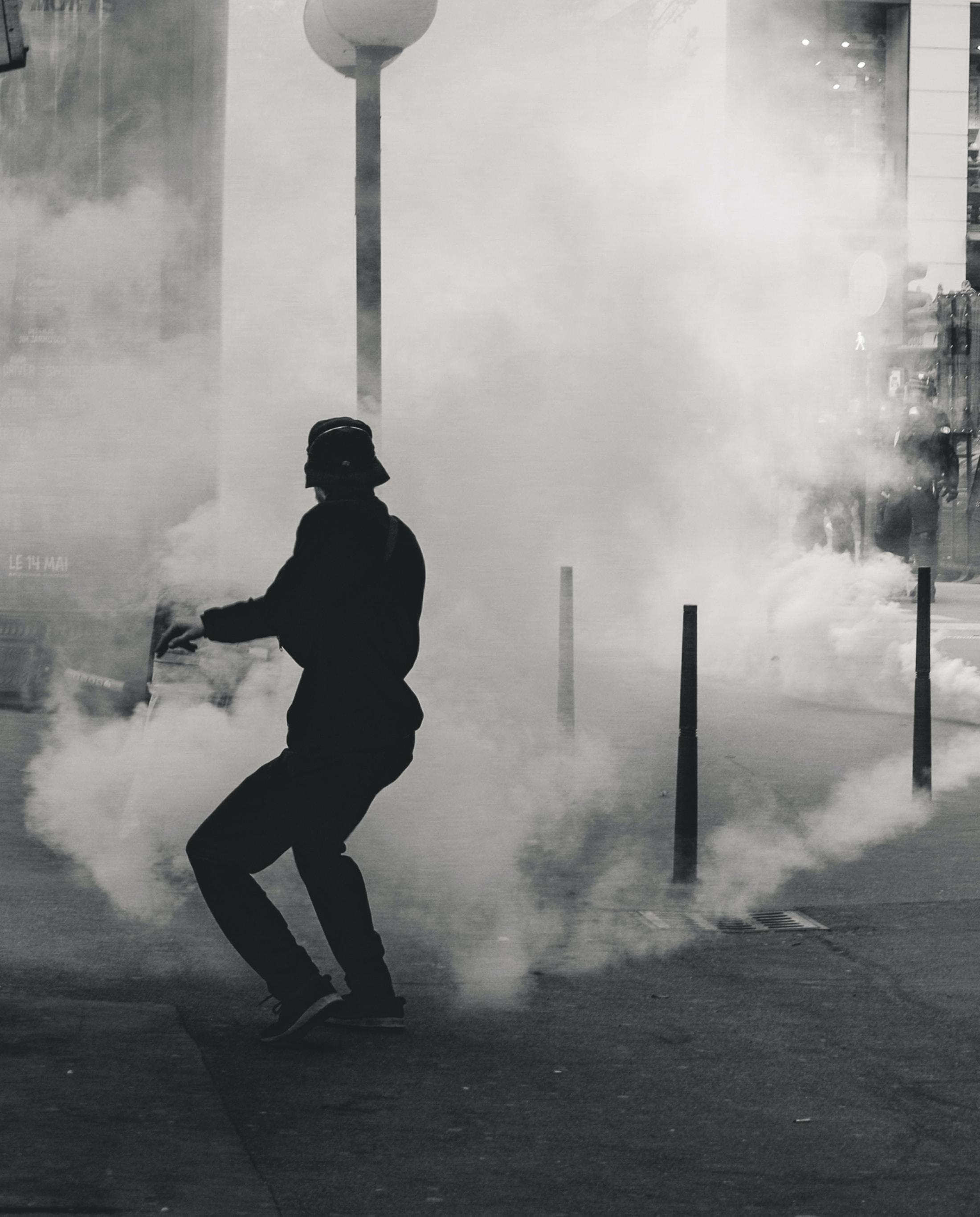
In this section, our readers explore topics relating to politics around the world

Disclaimer: the opinions expressed in the following piece are controversial and intentionally inflammatory All facts are backed up by research but the opinions are the writer’s alone Please do not use them for degrading, harmful purposes.
September 11th 2001; a date that has carved a permanent spot for itself in history Naturally, our westernised, America-centric mindsets lead us to think of 9/11 as a catastrophic, unwarranted act of aggression against the United States of America. And while that fateful day was undoubtedly devastating on multiple fronts, so was all which preceded and followed it The past two decades have been shaped and moulded by popular opinion, censorship, and prejudiced discrimination, that have fueled both the tension and the ignorance that surround the four suicidal terrorist attacks and their repercussions
The short and less-discussed answer is simple; no. The incompetence, hypocrisy and corruption of the American government was what, above all else, took a toll on the civilian population of the US The president at the time, George W. Bush, adopted a “violence to counter violence” ideology after the attacks, which did nothing to support the American people In fact, he thought it wise to declare war on Iraq, a nation that was innocent in that situation. Bush, a Republican from Texas and the son of former president George H.W. Bush who, funnily enough, had very strong and amicable ties with the Bin Laden family, started his first term as the 43rd US president on January 20th 2001
At 8:46 am on Tuesday the 11th of September 2001 an American Airlines flight crashed into the North Towerknown as one of the ‘Twin Towers’ - of the World Trade Center complex in lower Manhattan, New York City The following three attacks occurred at 9:03 am, 9:37 am and 10:03 am, hitting the South Tower, the Pentagon and a field in Stonycreek, Pennsylvania respectively The crashes caused the loss of nearly 3000 lives and served as a starting point of the ‘war on terror’ or ‘Global War on Terrorism’

The seemingly unmotivated nature of the attacks led to America being seen as the victim, but is the global superpower really all that innocent?
Prior to 9/11, Bush displayed a serious lack of awareness, hence lack of action, regarding threats of terrorist attacks This was largely due to the fact that in his first eight months in office before September 11 George W Bush was on vacation 42% of the time, according to the Washington Post Before the attacks, Bush hadn’t held a single meeting to discuss potential terrorist activity despite American intelligence providing multiple reports, the last being at the beginning of August 2001, that highlighted the importance of preparing and preventing -in ways such as holding peace talks to negotiate diplomatic resolutions- for aggressions against the USA orchestrated by the infamous founder of the notoriously violent pan-islamic militant organisation Al-Qaeda.
"Theseemingly unmotivatednatureofthe attacksledtoAmerica beingseenasthevictim, butistheglobalsuperpower reallyallthatinnocent?
Theshortandlessdiscussedanswerissimple; no. ”
Then, on the 11th of September, disaster struck. The president was sitting in a school classroom reading books to children on that Tuesday morning When he was informed by his chief of staff of the fall of the North Tower with the words ‘the nation is under attack’, did he jump up from his chair and rush out of the room? No, he did not. He continued to read children’s books for eleven more minutes before deciding that a terrorist attack on the country he was supposedly running was a good enough reason to leave his seat. In the days that followed, Bush’s lack of morally sound leadership and decision-making skills was once again reflected in his actions In the immediate aftermath of the attacks, the government ordered North American airspaces to be completely closed for days. Nobody was allowed to fly. That is, nobody except the old friends of the Bush family; the Bin Ladens
The Bush administration disseminated terror as a means to maintain control of the population, keeping anyone who even remotely fell under the broad stereotype of ‘terrorist’ under their watchful eyes They spent the final months of 2001 and the entirety of 2002 giving their people reasons to demonise the country of Iraq, which was not tied to the 9/11 conflict in any way. This was a strategic move seeing as the US government had been planning on taking control of the Iraqi government by choosing its leader for quite some time, and with panic ruling the nation it was easier to spread ideas about why the US should conduct ‘special military operations’ in said country

Knowing with almost absolute certainty that Osama Bin Laden was behind the attacks, did the Bush administration bring his family in for questioning about his whereabouts and intentions as should be done with anyone related to a person who committed criminal acts? No, they didn’t In fact, quite the contrary On September 13th, the White House authorised 6 private jets and almost two dozen commercial planes to take the Bin Ladens and numerous other Saudis back to Saudi Arabia 142 Saudis were allowed to leave the country while nobody else could fly, and 24 of these were directly related to Osama Bin Laden. Following 9/11, the United States quickly became a country where fear was the sole figure of authority
Subsequently, on the 19th of March 2003, as previously mentioned, the president of the United States of America and the US military decided to invade the sovereign nation of Iraq Instead of focusing on the internal moral and political struggles in the country, president Bush opted to expand his country’s influence in the Middle East in order to gain greater geopolitical and economic control of land, oil and other resources Iraq was in no way linked to Al-Qaeda and the 9/11 attacks, but it was the US government’s chance to expand their territorial and political control. This they did by accusing Saddam Hussein, the president of Iraq, of hoarding weapons of mass destruction (WMD) such as nuclear weapons, or “nucular” weapons as Bush often erroneously referred to them in public speeches, which were a ‘threat to international peace’
"TheUnitedStatesquickly becameacountrywhere fearwasthesolefigureof authority.TheBush administration disseminatedterrorasa meanstomaintaincontrol ofthepopulation”
Needless to say; there were no such weapons in Iraq. However, this was the reason they gave for removing Hussein from his position of power, charging him with premeditated murder, imprisonment and the deprivation of physical movement, forced deportation and torture, as well as crimes against humanity, and later executing him in 2006

All signs pointed towards Saudi Arabia being the country harbouring Osama Bin Laden, and it was also the birthplace of 15 out of 19 hijackers that took over the aeroplanes. Despite this, president Bush chose to start a war in Iraq, a nation that had never attacked or threatened to attack the US; a nation that had never murdered even a single US citizen.
Regardless of the numbers, all deaths wreaked havoc in both nations and caused unnecessary tension, discrimination and hate among countries These horrors are the direct result of poor administration which led to the world having a distorted, polarised perception of terrorism and justice.
So, America’s invasion of Iraq commenced and lasted until December of 2011, for a total of over eight years. The media in North America was not allowed to show images of the coffins of dead US soldiers and most of the Iraqi corpses were censored as well Since the beginning of the war, there have been over 300 000 Iraqi civilian deaths; around 100 times the total number of deceased persons during the 9/11 attacks. This is not to say that the terrorist attacks of 2001 are of lesser importance, but it is to say that the murders at the hands of the US government and military in Iraq deserve the same amount of recognition as the ‘Twin Towers’ attacks.
Learning from the past and living in the present, we must strive to create a future where our view of international politics isn’t clouded by widespread misconceptions, and where the deeply-rooted hunger for power of one nation cannot lead to global catastrophe.

"Despitethis,president Bushchosetostartawar inIraq,anationthathad neverattackedor threatenedtoattackthe US;anationthathad nevermurderedevena singleUScitizen.”
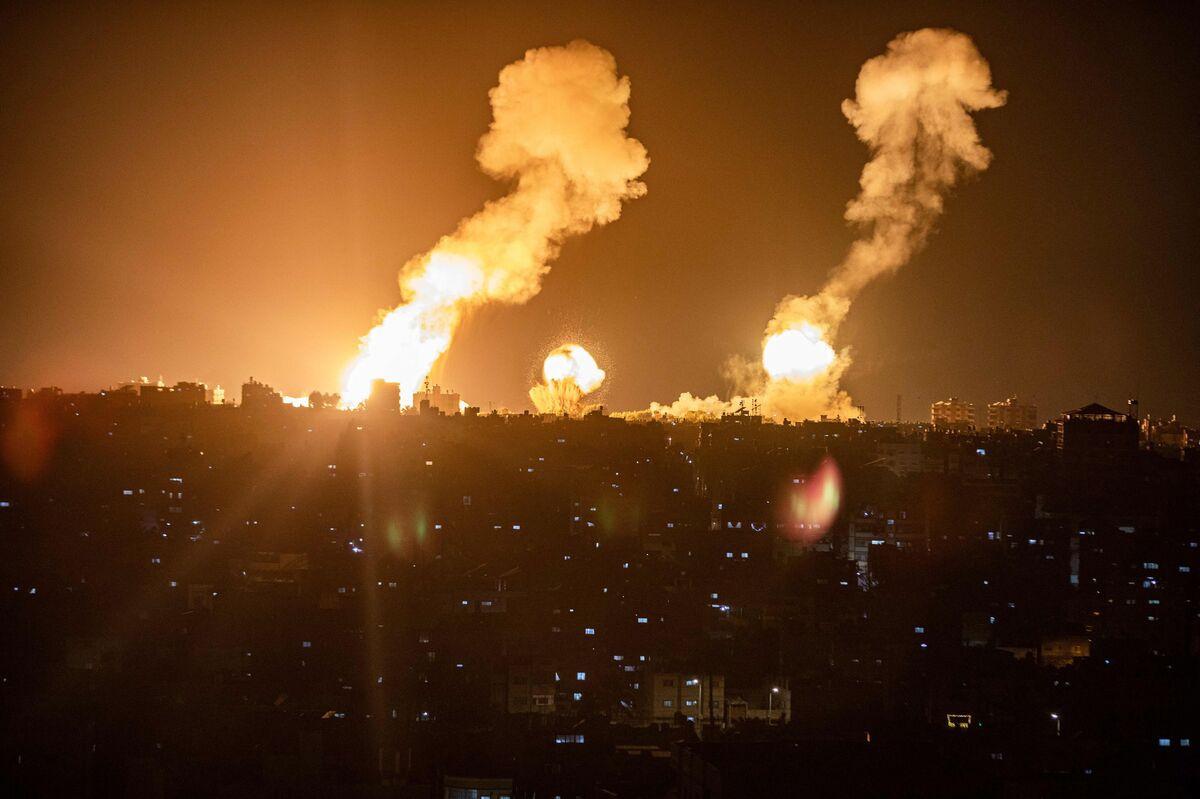 By Raya Gupta '25
By Raya Gupta '25
This year Ramadan, Passover and Easter all overlap which is the icing atop a bitter cake that has comprised the worst Israeli-Palestinian violence in a long time. This uptick in tension is partially due to the rising popularity of the far right and ultra-religious movements and their leadership of the entire country under the coalition government of Benjamin Netanyahu. From unpopular judicial reforms that threatened to force the nation into a standstill after widespread protests and strikes, to breaches of long held customs in regards to the al-Aqsa Mosque: the status quo is being overturned to the great concern of the international community It is as if Vesuvius has shown signs of eruption; the tense situation seems dangerously close to a blowing point. We have seen the tragedy of such an explosion in the past and it is truly the last thing that the world needs right now.
The Israeli army killed at least 170 Palestinians, including 30 children, and injured at least 9,000. The first two months of this year have been the most violent since 2000, with 65 Palestinians killed, including 13 children.
For more than a year now, tensions in the occupied Palestinian territories have been high. Armed Palestinian resistance has been active, especially in Jenin and Nablus, while the Israeli security forces have carried out incessant raids of Palestinian towns and villages. The United Nations called 2022 the deadliest year for the occupied West Bank in the past 16 years.
Pressure steadily built during the first week of April 2023 after Israeli military raids on the Al-Aqsa Mosque This mosque is a holy site to Judaism (known as Temple Mount) and Islam (known as alHaram al-Sharif). The 2021 war between Hamas and Israel was partially initiated by raids on the AlAqsa Mosque which are viewed as a great provocation by the entire Arab community In January, Jordanian Ambassador Mahmoud Daifallah Hmoud told the UN Security Council that Israeli attacks on al-Haram al-Sharif are provoking “the feelings of nearly two billion Muslims” and could spark a “religious conflict” Israeli restrictions on Muslim worshippers' access to the site have unsurprisingly led to protests and outbreaks of violence. There is no legal precedent for Israel to ban Muslims staying overnight at the Al-Aqsa Mosque and it is customary for Muslims to perform overnight prayers at mosques during Ramadan, in a ritual known as itikaf. But Israel has frequently denied this right of prayer to Muslims, circumventing the authority of the official Islamic Waqf council that is responsible for managing the site.
"ItisasifVesuviushas shownsignsoferuption; thetensesituationseems dangerouslyclosetoa blowingpoint."
Israel’s jurisdiction over East Jerusalem is in fact not recognized by international law and Israeli entry is forbidden by a status quo agreement The excuse for the Israeli police’s raid on Wednesday the 5th of April was that hundreds had barricaded themselves inside the mosque in order to induce a violent riot against Temple Mount visitors in the morning It was the Israeli police’s intervention in Muslim freedom of religion that led to a violent riot that night, however. Videos shared on social media from early on Wednesday showed Israeli police beating Muslim worshipers with batons. Eyewitnesses also reported that the police broke windows, smashed doors and fired stun grenades and rubber bullets. The raid caused outrage in Arab states and was criticized by Israel’s allies, including the United States.
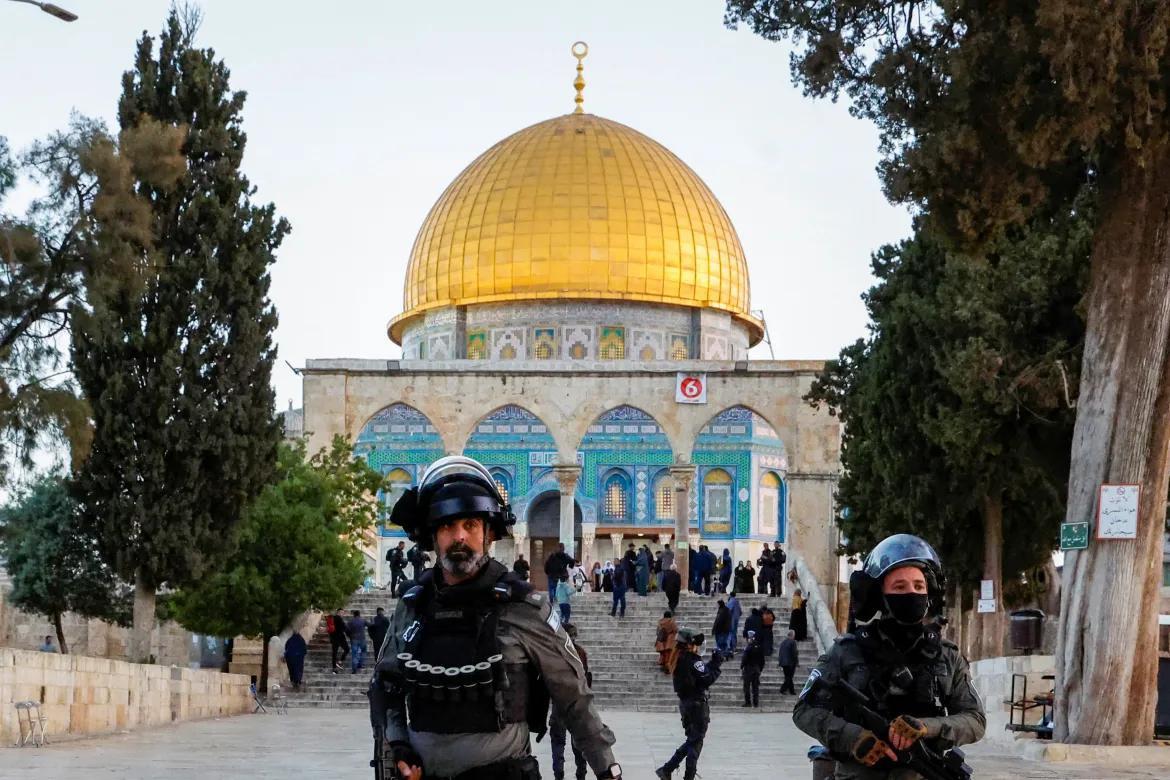
Then during the early morning of Friday the 7th of April, Israel struck targets in Lebanon and the Gaza Strip; this is considered the most serious escalation between Lebanon and Israel since 2006 when Israel fought a war against Lebanon’s Hezbollah movement. The Israeli military’s strikes occurred only hours after dozens of rockets were fired from Southern Lebanon in retaliation for the raid on Al-Aqsa. The Israeli military attributed the rockets to Palestinian militias in Lebanon but said the fighters attacked with Hezbollah’s knowledge. Luckily there were no reported deaths due to the exchange of fire That same Friday, however, a shooting in the occupied West Bank killed two sisters and critically injured their mother in what Israeli police described as a “terror attack,” while Hamas and Islamic Jihad praised what they called a “heroic operation ” Shortly after that, a car ramming in Tel Aviv killed an Italian man and injured 5 other tourists. Rocket fire was also exchanged between Syria and Israel: Israel struck Syrian military targets after 6 Syrian rockets were shot towards Israeli territories, one landing in the annexed Golan Heights with debris crossing the border into Jordan as well.
Increasingly extreme and right wing elements of Israel have greatly contributed to this increase in hostility Benjamin Netenyahu has been in office for three months and in that time the United Nations has held four emergency meetings on Israeli-Palestinian tensions. One of the biggest roadblocks when it comes to negotiating tensions is the unwillingness to compromise and oftentimes wrongful sense of entitlement
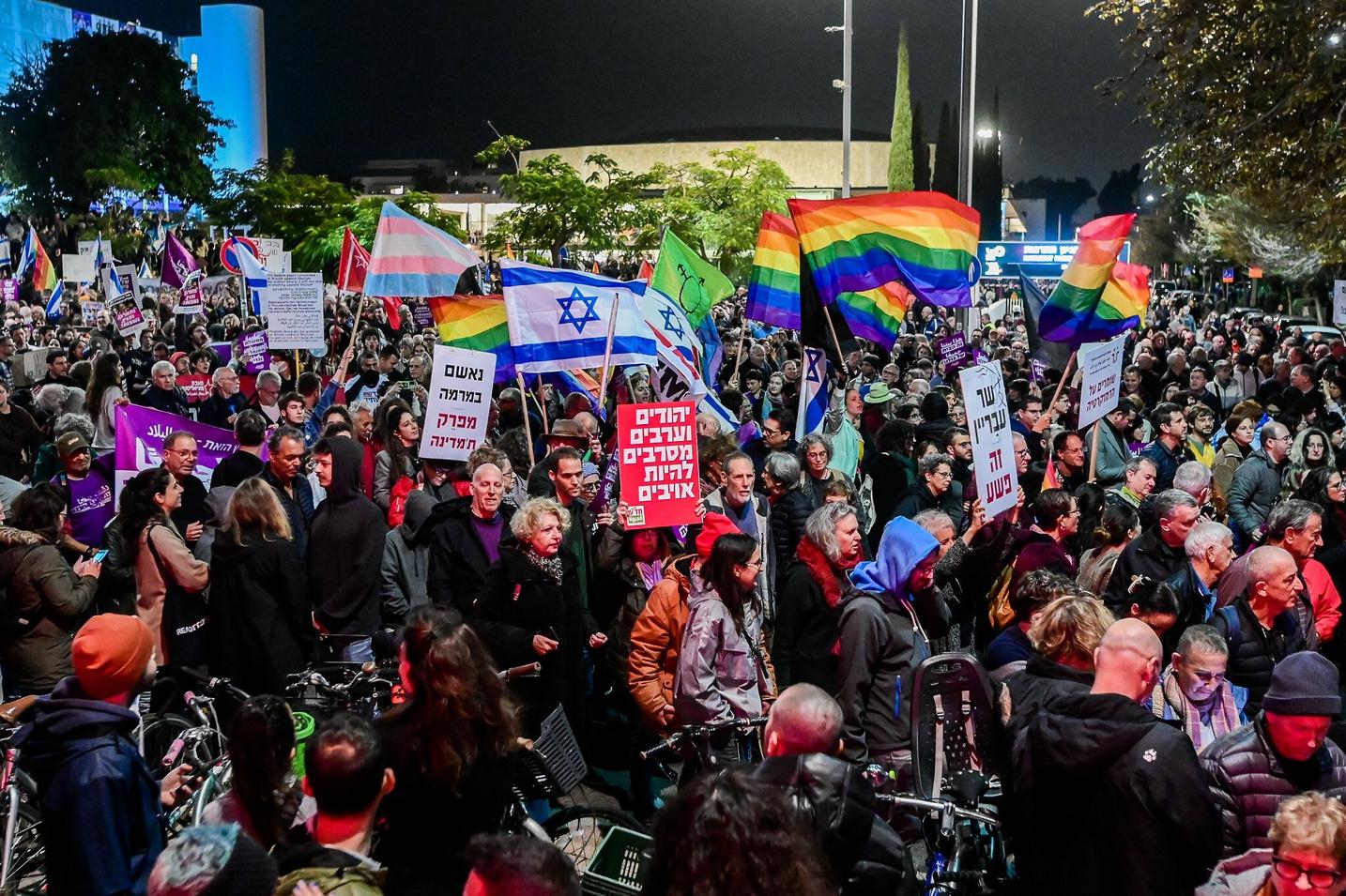
"Oneofthebiggest roadblockswhenitcomes tonegotiatingtensionsis theunwillingnessto compromiseand oftentimeswrongfulsense ofentitlement."
The Netenyahu government has embodied these traits, with the added flaws of power-hungriness, selfishness and corruption sending the entire country into turmoil over worrisome judicial reforms. The Israeli Finance Minister Bezalel Smotrich gave a speech featuring a map that included not only the West Bank as part of Israel, but its neighbor Jordan as well Jordan was part of the original Palestine Mandate back in 1920, but it has been an independent, sovereign state since 1946 and has proven itself on the international stage as a small island of stability within a sea of conflict Minister Smotrich also denied the existence of the Palestinian people in his speech, calling them an invention of the past 100 years. It is this type of rhetoric that inflames situations and leads to escalation in already tense affairs
However, it is impossible to assign blame to one entity for the situation in Israel; it is simply too complicated and many of the culprits lie in the past There have been too many mistakes by too many parties and too many refusals to collaborate amongst them all. We can only hope that the future holds more cooperative and forward thinking leaders who are willing to compromise to bring forth an era of calm, but it seems that that future is a long way away.
So what predictions can we make about the near future? Will war break out? Or will the uneasy peace win out? Could security threats like the conflict between Israel, and Hamas and Hezbollah unify Israel? Or will these groups – both backed by Israel’s longtime foe Iran – successfully take advantage of Israel’s domestic division? Netenyahu has generally been cautious with his military actions, and hopefully will continue to be so considering how strained relationships between Israel and its allies have become. Caution – after collaboration– is the best way to ensure that this situation doesn’t spiral out of control But regardless of any amount of caution, the severe lack of trust and goodwill between the two groups remains at the forefront of all actions. It will take a miracle to diffuse the circumstances and prevent either side from choosing to escalate

People also tend to follow their leaders, and a bad example from the top can lead to repercussions all the way at the bottom This has been seen with the violation of convention at the Al-Aqsa Mosque where it has been the long standing agreement that non-Muslims can visit, but only Muslims can pray there Some members of the current Israeli government have campaigned to allow Jewish prayer there and Jewish visitors have increasingly prayed more or less openly at the site in defiance of the rules. Certain extreme Jewish groups have even encouraged people to sacrifice goats on Temple Mount as part of an ancient Passover ritual that is no longer practiced. This led to calls for Muslims to stay overnight at the Al-Aqsa Mosque and Israeli raids in an effort to prevent overnight prayer A truly vicious circle of violence

"Caution–after collaboration–isthebest waytoensurethatthis situationdoesn’tspiralout ofcontrol."
As the world continues to evolve, so do the challenges and threats to international security. One of the most debated topics in recent years has been the possibility of Germany's remilitarization and the implications this would have for European security. Given the nation's past and the destruction that its military ambitions caused, the idea of a rearmed Germany is a touchy subject for many However, some argue that with the changing global landscape and the rise of new threats, a stronger German military could be necessary for the defense of Europe. This debate has sparked intense discussions among policymakers, military experts, and citizens alike, with opinions ranging from enthusiastic support to vehement opposition. In this article, we will explore the arguments for and against the remilitarization of Germany and examine what the future of European security may look like if this were to occur.
When Olaf Scholz, chancellor of Germany, announced the "Zeitenwende,” which means “turn of the times," it was symbolic of a historic turning point in German domestic and foreign policies, but it was received with mixed emotions. Some were quite positive, with many thinking that rearming Germany is necessary and has been avoided for far too long, especially since Germany is the fourth largest economy in the world and has been neglecting arms spending for decades.
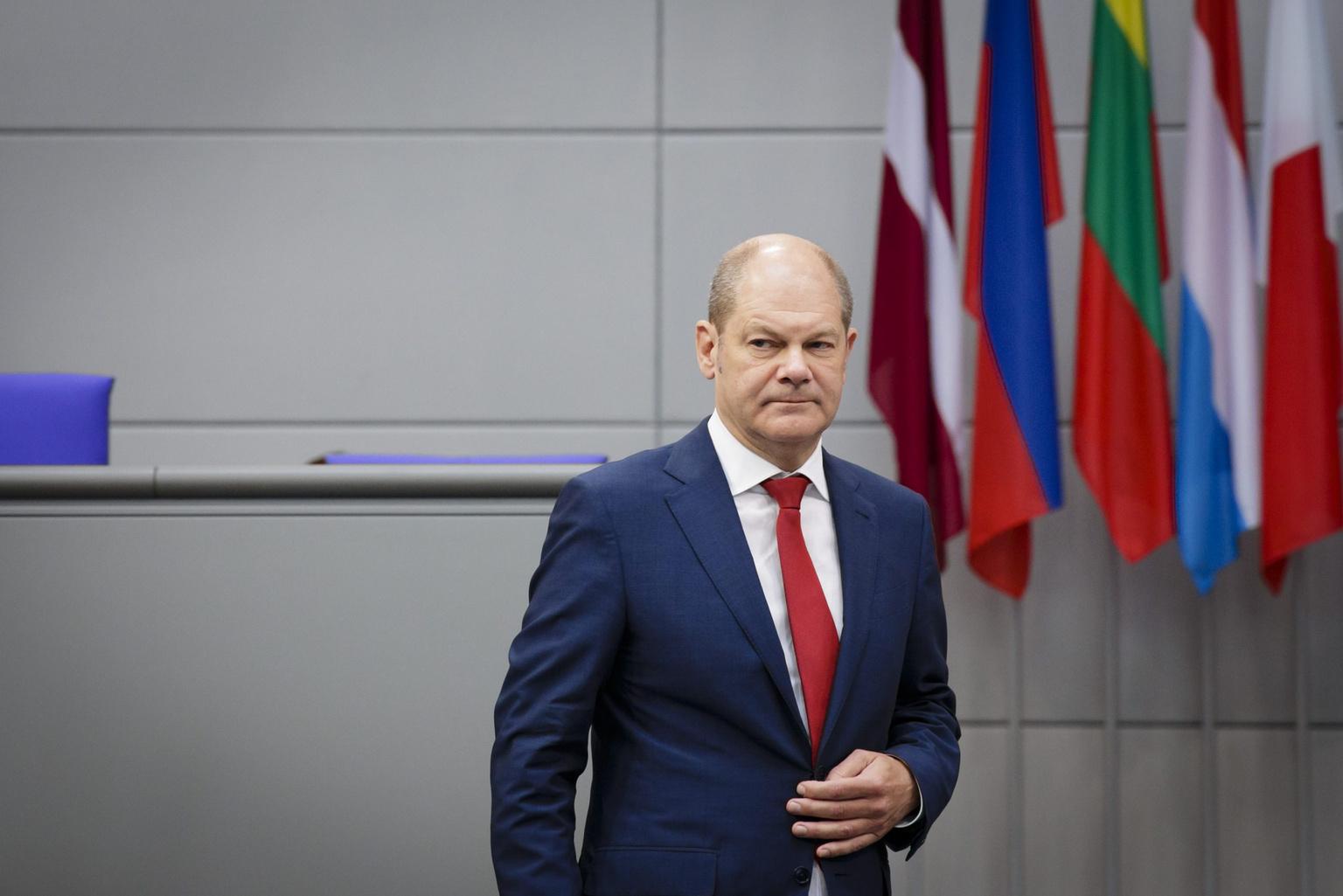
Others saw it as being of major importance because of factors like deterrence, which in this case is a strategic concept in which a country builds and maintains military capabilities to discourage potential adversaries from taking aggressive actions. The idea is that the perceived threat of significant retaliation would prevent adversaries from initiating an attack or escalating conflicts The conflict in Ukraine has only supported this point.
<Another major point is burden-sharing, specifically under NATO. In NATO's context, burden-sharing typically involves military spending, troop contributions, and participation in joint exercises and operations. The idea is that by sharing the burden, alliance members can collectively maintain a strong defense while minimizing the individual strain on each country's resources
"Germanyisthefourth largesteconomyinthe worldandhasbeen neglectingarms spendingfordecades."
"Theideaisthatbysharing theburden,alliance memberscancollectively maintainastrongdefense whileminimizingthe individualstrainoneach country'sresources."
In recent years, there has been growing concern about the unequal distribution of defense spending and contributions within NATO The United States has been the primary guarantor of European security since the inception of NATO in 1949 and has consistently pushed for European countries to take more responsibility for their defense As a result, other European nations welcomed it because it can increase European security and allow them to rely less solely on the United States. This shift in Germany's defense policy has been recognized both internationally and domestically European nations appreciate Germany's efforts, understanding that they foster a more balanced and resilient alliance that can better address the complex security challenges of the 21st century. German policymakers and military officials also acknowledge the need for change For instance, Lieutenant General Alfons Mais, who is the chief of the Bundeswehr, has expressed concerns about the state of Germany's armed forces. He stated: “And the Bundeswehr, the army that I have the privilege of leading, is more or less bare " He continues, "The options that we can offer the governments to support the alliance are extremely limited.” This candid assessment highlights the necessity for Germany to invest in and modernize its military capabilities In response to these concerns, Germany has taken steps to increase defense spending, invest in modern military equipment and technology, and enhance its troop readiness
. These efforts are crucial for maintaining a strong, unified NATO that can deter potential adversaries and protect the interests of its member states Germany's commitment to burden-sharing would demonstrate its dedication to the alliance's collective defense and the overall stability of the European continent. It is important to see this from a different perspective; there are some factors that could potentially make the remilitarization of Germany a cause for concern. Critics argue that the resurgence of a strong German military could lead to an arms race in Europe, exacerbating regional tensions and increasing the risk of conflict Furthermore, they fear that it could embolden far-right nationalist elements within Germany, which could have negative repercussions for the country's political stability and social cohesion
Another concern is that Germany's remilitarization may provoke anxiety among its European neighbors, particularly those with a history of conflicts or tensions with Germany. Countries like Poland and France might perceive a rearmed Germany as a potential threat, straining diplomatic relations and undermining the trust and cooperation necessary for a secure and peaceful Europe. Additionally, some argue that increasing military spending and focusing on remilitarization may divert resources away from other important priorities, such as education, healthcare, and social programs. Critics contend that these investments are essential for the long-term well-being and stability of German society and that sacrificing them for military purposes could have unintended consequences. It is also worth considering the potential impact of Germany's remilitarization on the broader international community While some NATO allies might support the move, non-NATO nations, especially Russia, might be skeptical or even hostile toward it. Tensions between Russia and the West have been high in recent years, and the remilitarization of Germany could further escalate this situation, potentially leading to a new Cold War-like environment.
By doing so, Germany is not only responding to external pressure from NATO allies but also addressing the domestic understanding that a well-equipped and capable military is crucial for both national and European security

The debate surrounding the remilitarization of Germany must also focus on the historical and political context that has shaped the nation's defense policy over the years Following the reunification of Germany, German politicians banked on the so-called "peace dividend." The reunification process was extremely expensive, primarily due to the dire economic situation in the former German Democratic Republic (GDR). Consequently, German policymakers invested significantly less in the military as they no longer perceived any imminent threats However, this approach has led to tensions within NATO, particularly with the United States. The US has long urged its allies to allocate at least 2% of their GDP towards defense spending. Germany has, for years, either ignored this request or agreed to it without taking substantial action This lack of commitment has strained relations with the US, which has borne the brunt of the financial burden for European security within NATO. It is also important to acknowledge that Europe is arguably already in a new Cold War, especially since the Ukrainian conflict began. The invasion by Russia has revitalized NATO, which was losing its sense of purpose prior to the crisis. In this context, Germany's remilitarization may not significantly alter the current geopolitical landscape but could contribute to reinforcing NATO's collective defense and demonstrating the alliance's resolve. In light of these additional points, the discussion around Germany's remilitarization becomes even more intricate The historical context of reunification, economic considerations, and evolving international security dynamics all play a role in shaping the arguments for and against a more robust German military

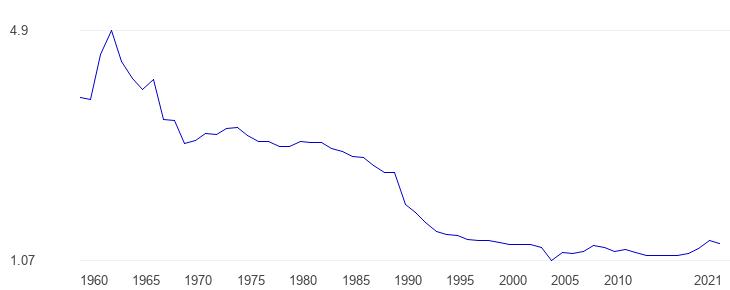
The challenge for policymakers and experts will be to navigate these complexities while working to ensure the long-term security and stability of both Germany and the wider European region In conclusion, the debate surrounding the remilitarization of Germany is complex and multifaceted, with strong arguments on both sides. Advocates believe that a stronger German military is necessary for the defense of Europe, burdensharing within NATO, and maintaining a unified and capable alliance. On the other hand, critics fear that remilitarization could lead to increased tensions, both within Europe and internationally, and divert resources away from other vital priorities. As the discussion continues, it is important for policymakers, military experts, and citizens to carefully weigh the potential benefits and risks of this significant shift in Germany's defense policy. Ultimately, the future of European security will depend on striking a delicate balance between the need for a robust and capable military and the importance of maintaining peace and stability within the region and beyond

"Asthediscussioncontinues, itisimportantfor policymakers,military experts,andcitizensto carefullyweighthepotential benefitsandrisksofthis significantshiftinGermany's defensepolicy."
Imagine you are walking into a courtroom The air is warm and stifling, the benches hard against your back, the stares of the prosecution burns holes through your head. Imagine listening to people accuse you of murder, a string of murders in fact, taking lives for relatively small amounts of cold cash Imagine that you were on a night job at that time, a job where you had to check in with a security guard and all your moves were accounted for. Imagine you have a perfect alibi. Imagine they still charge you with murder. Imagine you are innocent, but the world has decided you are guilty You are a gentle, sensitive soul…and you are on death row
This is not a fabricated tale This is the real story of Anthony Ray Hinton who spent nearly 30 years in some of the harshest prisons in the world under circumstances that no human being should be forced to endure, smelling his cell mates dying and wondering when he’d be next Anthony Ray Hinton was innocent, more than innocent; he was a kind soul, a man who loved his mother He was mowing her lawn when the police showed up to take nearly 30 years of his life from him He didn’t commit a single crime, but his time was murdered, every opportunity he had was murdered by the State of Alabama and the American legal system. How is it possible to convict an innocent man to death and call it justice?
According to the National Registry of Exonerations, the rate of wrongful convictions in the U.S. is estimated to be somewhere between 2% and 10% With a prison population of about 2.3 million, there could be anywhere between 46,000 to 230,000 innocent people incarcerated. But injustice isn’t only found in wrongful imprisonment, it is pervasive in the entire process of court. The American justice system is deeply flawed in that it targets the most vulnerable sections of society –more often than not it is the hand of injustice, prejudice and elitism that gives verdicts, not the hand of justice, equity and freedom Poverty is punished by the system and wealth is placed above innocence

"Imagineyouare innocent,buttheworld hasdecidedyouare guilty''
"Howisitpossibleto convictaninnocentman todeathandcallit justice?"
For hundreds of thousands of arrestees every year, the difference between freedom and jail depends solely on wealth status A wealthy person can buy their pre-trial freedom, keep their job, and live at home while preparing their defense An arrestee who is poor must stay in jail for days, weeks, months, or years until their case resolves Those detained prior to trial are more likely to lose their jobs, get evicted from their homes, and be unable to care for dependent relatives.
People who are wealthy can also afford to choose their own attorney, while those who are poor have to settle with what they are given. A good defense can mean the difference between life and death, but not everyone understands the responsibility of having a human life hinging on their actions and not everyone is given the defense they deserve.

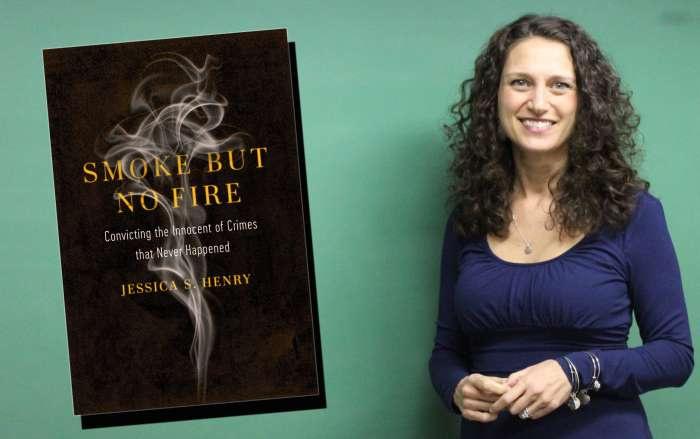

Anthony Ray Hinton was a poor black man and he was told that the prosecutors, the jury, the judge, the world, and even his own lawyer, didn’t care about his innocence; they needed someone to prosecute and he was there. He wasn’t recognized as a human being with a life and a family, he was a name they could blame, a face they could demonize.
For the American “justice” system to live up to its name, there is much work to be done to close the divide between the treatment of wealthy and poor constituents But there are a few beacons of hope shining in the dark abyss of inequity. One of those beacons is Bryan Stevenson, the man who founded the Equal Justice Initiative and the man who fought for Anthony Ray Hinton’s freedom The Equal Justice Initiative is a non-profit organization that combats mass incarceration, excessive punishment and racial inequality. They represent clients who haven’t received effective counsel, who have been wrongfully convicted or who have been the victim of any other miscarriage of the justice system where prejudice prevailed over truth and morality. There are many others trying to bring attention to this issue, including Jessica Henry, professor in the in the Department of Justice Studies at Montclair State University who wrote the book Smoke But No Fire: Convicting the Innocent of Crimes that Never Happened, and Hinton himself who published his experience on death row in his memoir The Sun Does Shine There are lawyers in every state working to make innocence matter and shedding light on the issue is one way to champion that fight and help those wrongfully or unfairly imprisoned
"Moreoftenthannotitis thehandofinjustice, prejudiceandelitismthat givesverdicts,notthe handofjustice,equityand freedom"
The new law that was proposed by the Ugandan Parliament was entitled the “Anti-Homosexuality Act (2023),” and it intends to criminalise homosexuality in 2 ways The first is the prohibition of same-sex sexual relations and the promotion, advocacy or “normalisation” of the aforementioned relations. The legal documents outline the various charges that can be applied, these include “the offence of homosexuality,” “Aggravated homosexuality” and “Promotion of homosexuality.” The bill also seeks to prohibit identities that include lesbian, gay, transgender, queer or “any other sexual or gender identity that is contrary to the binary categories of male and female.” The penalties, as stated in the act, range from years to life in prison. The bill was introduced by Asuman Basulirwa in March of 2023, but these new legal procedures are not out of the blue Uganda and countless other African countries have had homophobic sentiments and legislation for many years as a result of colonial-era laws. This bill is not the first of its kind as the Ugandan parliament and Yoweri Museveni previously passed an act named the “Anti-Homosexuality Act (2014),” that proposed the death penalty for certain cases. It was named by many as the “Kill the Gays Bill” for its barbaric punishments However, after international pushback on the death penalty for gay people in Uganda and the potential of Uganda losing foreign aid in late 2014, the bill was struck and deemed invalid on “procedural grounds.”

This new proposal was voted for by 387 members of parliament with only 2 opposed to it. The bill is not an easy one to protest as doing so may result in suspicion of the individual One of the opposing MPs stated, “The bill is ill-conceived, it contains provisions that are unconstitutional, reverses the gains registered in the fight against gender-based violence and criminalises individuals instead of conduct that contravenes all known legal norms ” Fortunately, these inhumane proposals have been detested in other countries including South Africa where many took to the streets of Pretoria in protest of Uganda’s new legislation
Yoweri Museveni, the current president of Uganda, asserts that homosexuality is a “Western import.” However, he has yet to sign the bill, stating that he agrees with the punishments outlined but urged lawmakers to amend it, specifically regarding “rehabilitation.”
"OneoftheopposingMPs stated,“Thebillisillconceived,itcontains provisionsthatare unconstitutional,reverses thegainsregisteredinthe fightagainstgenderbasedviolenceand criminalisesindividuals insteadofconductthat contravenesallknown legalnorms.”
This bill’s impact will not end with the prohibition of LGBTQ+ identities though HIV is a widespread issue within countless underdeveloped nations Implementing an act to criminalise homosexuality may also stunt the treatment and testing for sexually transmitted infections such as HIV as the infection is commonly associated with homosexuality, even within more developed countries. Though this is not the case, the vast majority of these transmissions are between heterosexual partners and around 10% (Some research indicating that numbers spiked up to 26% at times) is passed from mother to child In countries that have stigmatised queer people, acquiring treatment or a diagnosis of HIV/AIDs can be a dangerous endeavour. This can and may inevitably lead to the greater spread of the infection If this occurs, Uganda will not reach its goal of controlling the spread of the infection by 2030. The bill is utterly counterproductive to the interests of the people and their health.
The trigger that began these specific and egregious violations of human rights in parliament began around 2009 with an international presence Exodus International was a religion-based nonprofit organisation that was founded in 1976 upon values consisting of pro-conversion therapy and evangelical beliefs It is alleged to be an organisation of “ex-gay” individuals who believed that the “reorientation” of sexual orientations, primarily gay and lesbian, was possible. This organisation had a noticeable role in dangerous, discriminatory policies and this was rather apparent in 2009 Board members from the organisation travelled to Uganda to take part in a conference about homosexuality. They were accused of propagating the idea that homosexuality was “evil” could be “cured,” and was a threat to the “traditional African family ” Ugandan teachers, politicians and police officers are reported to have attended the event. Around the same time, other independent American religious leaders who worked in Uganda were also criticised for comparing homosexuality to pedophilia, and influencing policy by way of donations.
Another tragic impact of these draconian laws is the great spike in hate crimes committed against LGBTQ+ people and activists. After the bill was imposed, an unimaginable spike of discrimination began An organisation known as Sexual Minorities Uganda created a report to document the attacks on LGBTQ+ people in the country, they listed an attempted lynching, arson, blackmail, evictions, arrests and mob violence

"Implementinganact tocriminalise homosexualitymay alsostuntthe treatmentandtesting forsexually transmittedinfections suchasHIV"
"They[ExodusInternational] wereaccusedof propagatingtheideathat homosexualitywas“evil” couldbe“cured,”andwasa threattothe“traditional Africanfamily.”
A month after this convention, a Ugandan politician introduced the aforementioned “Kill the Gays” bill After receiving strong opposition to their presence in the homophobic conference, Exodus International made the following statement, “The Christian church cannot and should not condone homosexual living or gay-identified clergy within its leadership, but it must be permitted to extend the love and compassion of Christ to all We believe that this legislation would make this mission a difficult if not impossible task to carry out.”
Despite being contested, denounced and shunned by companies, activists and even the UN’s High Commissioner, the bill may once again restrict the freedom of the people, preventing positive change within a country that is in desperate need of it, and contributing to violence and discrimination against LGTBQ+ people in Uganda


The fight for the human right to expression and identity is ongoing in Uganda and a plethora of other nations It has long been a battle fought against laws criminalising this human right, a movement gaining great prominence from the Stone Wall riots. This particular bill must be challenged for its inhumane claims and punishments as well as its detrimental impacts across the country. If this bill is signed into law by Yoweri Museveni, it will only bring pain without prosperity to LGBTQ+ people and Uganda once more

"Despitebeingcontested, denouncedandshunnedby companies,activistsandeven theUN’sHighCommissioner, thebillmayonceagain restrictthefreedomofthe people,preventingpositive changewithinacountrythat isindesperateneedofit,and contributingtoviolenceand discriminationagainst LGTBQ+peopleinUganda."

Our writers provide fascinating insight on all things science-related.

In February, the James Webb Space Telescope (JWST) operated by the National Aeronautics and Space Administration (NASA), discovered the presence of 6 galaxies which cannot be categorized nor explained by our current understanding of physics
Dr. Nelson, who was observing the JWST’s images, noticed a series of unusually bright and, most importantly, vivid red dots. The dots were soon found out to be galaxies roughly the size of the Milky Way, with an estimated number of 10-1000 billion stars, each the size of the sun. However, the aspect which rattled the scientific community and headlined world media is the vivid red color of the galaxies Red is a proxy for age in astronomy since the height of a light wave gradually flattens out over distance and makes it visibly more red to the human eye the further the wave travels, is used to figure out the star’s epoch.

Hence, the galaxies, nicknamed “UniverseBreakers”, have been discovered to be 13 5 billion years old, roughly 600 million years after the big bang. By our current theories regarding the beginning of the universe, and especially the Big Bang Theory, such galaxies should not have yet existed at the time, as it was believed that the first stars and galaxies started to appear only after a few hundreds of millions of years, during a period known as the Dark Ages. Thus, it leads scientists to question why not one, but six galaxies the size of the Milky Way existed during these supposedly initial stages of the universe, giving them the pseudonym as “Universe-Breaker” galaxies as they demonstrate a clear flaw in our current understanding of how the universe began.

"Thedotsweresoonfound outtobegalaxiesroughly thesizeoftheMilkyWay, withanestimatednumber of10-1000billionstars, eachthesizeofthesun."
In fact, Dr Chapman, an astrophysicist from Nottingham University, stated that “The discovery of such massive galaxies so soon after the Big Bang suggests that the Dark Ages may not have been so dark after all, and that the universe may have been awash with star formation far earlier than we thought.” Chapman followed up the comment voicing that further tests and analysis must be made before the existing theories and models regarding the origin of galaxies and the timeline of the universe must be recomposed.

Once they are able to estimate the distance between these galaxies and Earth, and confirm the mass of these galaxies, scientists will be able to declare whether these galaxies truly are as theoretically disruptive as they seem: a discovery which would represent how we still have much to discover and understand in our ever-expanding universe, filled with mystery and the unknown.
NASA is currently trying to create spectrum images, which encompasses a larger spread of electromagnetic waves in comparison to the average image’s Red Green Blue (RGB) spectrum.

"Furthertestsand analysismustbemade beforetheexisting theoriesandmodels regardingtheoriginof galaxiesandthetimeline oftheuniversemustbe recomposed."
"Oncetheyareableto estimatethedistance betweenthesegalaxies andEarth,andconfirmthe massofthesegalaxies, scientistswillbeableto declarewhetherthese galaxiestrulyareas theoreticallydisruptiveas theyseem"

Our writers provide new takes on anything cultural!

Gen-z were practically born with smartphones in their hands. We grew up not knowing much of a life without social media, technology, and constant entertainment Most of us were in middle and elementary school when we first got social media.

All of us at some point during lockdown and quarantine were locked in our houses with nothing but our technological social pacifiers – our phones It’s no surprise that the average teenager spends upwards of eight hours on their phone daily. You probably spend a lot more time on your phone than you would like to In fact most teens are not aware of how detrimental social media truly is
Social media can be detrimental to one's mental and physical health for various reasons. It can create feelings of social comparison, anxiety, depression, addiction, cyberbullying, decreased inperson social interaction, increased sedentary behavior, and exposure to unrealistic standards and negative influences.
Additionally, excessive screen time and lack of physical activity can lead to negative physical health outcomes.
However there are teens out there who shield themselves from such outcomes and they call themselves the Luddite teens A group of Brooklyn teens who threw away their phones and replaced them with flip phones, the group promotes a lifestyle of self liberation and separation from social media and meet each week on the steps of Central Library on Grand Army Plaza The club is named after Ned Ludd, an 18th century textile worker who protested against industrialization by smashing mechanized looms.
"Allofusatsome pointduringlockdown andquarantinewere lockedinourhouses withnothingbutour technologicalsocial pacifiers–our phones."
"AgroupofBrooklyn teenswhothrewaway theirphonesand replacedthemwithflip phones,thegroup promotesalifestyleof selfliberationand separationfromsocial mediaandmeeteach weekonthestepsof CentralLibraryon GrandArmyPlaza."
The Luddite teens’ philosophy is a belief system that embraces simplicity and shuns modern technology. They believe that the rapid advancements in technology have caused more harm than good and argue for a return to a more traditional way of living

The philosophy is often associated with environmentalism and a desire to live sustainably. Overall, the Luddite teens philosophy encourages a focus on community, mindfulness, and a rejection of consumerism

It is primarily based on the rejection of technology and modernization. It advocates for a simpler way of life that involves living off the grid, avoiding the use of electricity and other modern conveniences, and relying on traditional methods of living
However, it can also be seen as a form of escapism, as it involves retreating from the complexities of modern life and disconnecting from the broader society.
Since giving up their phones, members of the Luddite club express that they have more space, more time to read, and better concentration. Some even say that after deleting Instagram, Whatsapp and other messaging apps they prefer phone calls. They express feeling more fulfilled and overall happier
As we can see quite clearly with recent statistics, teenagers are more anxious and depressed than ever before. This could definitely have a correlation with phone usage as teenagers who were given time limits on their phone of eight hours reported feeling more tired and having less serotonin and dopamine than those who were given a four hour screen limit.
These so-called social networks are making us less likely to be social and enjoy social interactions
Now you might be thinking: Well how exactly do I put down my phone in the first place? members of the Luddite club report that having actual in person social interactions with friends and family is the most enjoyable and easiest way to be away from your phone for a couple hours. Picking up new hobbies such as reading, painting, a sport, or academics is another sufficient way to essentially distract yourself from your phone and overall feel more fulfilled with life
"However,itcanalsobe seenasaformof escapism,asitinvolves retreatingfromthe complexitiesofmodern lifeanddisconnecting fromthebroader society."
"Pickingupnew hobbiessuchas reading,painting,a sport,oracademicsis anothersufficientway toessentiallydistract yourselffromyour phoneandoverallfeel morefulfilledwithlife.
On December 2 2022, the famous multimillionaire body-building influencer Brian Johnson, aka “The Liver King”, posted a video admitting to taking as much as 12,000 USD of anabolic steroids a month Though this may not come across to some as surprising, many who bought his products were understandably outraged at this, viewing him as a fraud In the fitness industry, primarily in the circle of influencers, more people are doubting the hard work and achievements of each other, creating a toxic environment but also uncertainty regarding steroids and steroid use. More and more influencers are becoming ever more secretive about their routines on social media, fearing of coming out as an unnatural or “unnatty” bodybuilder/influencer. This leads to the facilitation of the spread of misinformation about the effects and risk of anabolic steroid use, but more importantly the lack of transparency and accountability of the potentially endangering effects to the well-being and health of individuals who seek to enhance their physical performance through steroids
It is important to first state what an anabolic steroid is. The most accepted definition is a “synthetic steroid hormone which resembles testosterone in promoting the growth of muscle. Such hormones are used medicinally to treat some forms of weight loss and (illegally) by some athletes and sports players to enhance physical performance” (Oxford Languages)


Anabolic steroids - which are a synthetic version of the testosterone hormone - mimic testosterone by binding with androgen receptors, which in turn, interact with certain protein nuclei that regulate the production of messenger RNA, sending instructions to ribosomes to create specific proteins The reason an athlete will perform better using steroids is because, by sending instructions to synthesize more proteins, the recovery and growth of the muscles is not only faster, but it also permanently increases the total room for muscle growth, depending on how long they use them.
Steroids (sometimes referred to as 'roids, gear, juice, etc.) in modern day culture are mainly used amongst professional athletes and bodybuilders who desire an increased performance or individual looks But how do steroids work?
Although taking anabolic steroids may seem like a quite positive practice, the truth is unfortunately a lot more grim Taking steroids has clear sideeffects, as proven by multiple health organizations such as the National Health Institute in the United States of America The following side-effects have been discovered; difficulty sleeping, fluid retention (swelling of body parts due to buildup of fluids), and sudden mood swings. In males, taking anabolic steroids can lead to baldness, impotence (and other lacks of sexual function), while in women it can lead to amenorrhoea, increased growth of facial hair, and balding. More importantly, taking anabolic steroids at a young age can lead to stunted growth, premature balding, acne scarring, and physical injuries such as but not limited to: a bicep tear This generally happens while causing excessive stress on different parts of the body, such as when the body is working the bicep in a bicep curl or the chest in a bench press scenario.
Despite these effects, anabolic steroids are still used in the world of medicine regularly for a plethora of procedures, although there are other factors in place to help the steroids work effectively One such medicine is called Anadrol50. The therapy using these steroids, requires the patient to maintain a high protein and high calorie diet for full benefits. The drug may be used on patients to help gain (or maintain, if a patient has an unstable weight) weight after an injury, serious illness, or ongoing infection. Moreover, they are also used to treat certain types of anemia, breast cancer in women, and in more recent times, in hormone therapy for transgender men to encourage the masculinization of the body, and prevent reverse-feminization.
Although taking anabolic steroids may seem like a quite positive practice, the truth is unfortunately a lot more grim Taking steroids has clear sideeffects, as proven by multiple health organizations such as the National Health Institute in the United States of America. The following side-effects have been discovered; difficulty sleeping, fluid retention (swelling of body parts due to buildup of fluids), and sudden mood swings. In males, taking anabolic steroids can lead to baldness, impotence (and other lacks of sexual function), while in women it can lead to amenorrhoea, increased growth of facial hair, and balding More importantly, taking anabolic steroids at a young age can lead to stunted growth, premature balding, acne scarring, and physical injuries such as but not limited to: a bicep tear This generally happens while causing excessive stress on different parts of the body, such as when the body is working the bicep in a bicep curl or the chest in a bench press scenario.

"Byprovidingafalse image,manypeople buyintothistypeof marketing,thinking thattheywillalsobe asmuscularandgood lookingastheones theylookupto withoutconsidering geneticsandthe possibilityofother substances"
The spread of misinformation and the toxic culture in the gym community has become a substantial issue for many Luckily, there are already many solutions which are starting to challenge this A method is to have social media influencers be completely transparent on the use of steroids and be informative. One such influencer is Noel Deyzel, a South-African body-builder who frequently discusses all sorts of areas of bodybuilding and going to the gym. Deyzel is open on his steroid usage and has touched on the topic, often openly disproving of influencers who are claiming to be natural when they are not He often informs his audience that steroids should not be taken, unless the necessary information regarding the risks and benefits are known. He is known as a very positive member of the online gym community, and has a widespread audience in the multi-millions on different platforms such as Instagram, Youtube, and Tiktok. Many influencers should aspire to be like Noel Deyzel, putting aside the possibility of encountering shame, and providing a friendly environment for all trying to go to the gym Overall, though steroids can be a versatile platform for personal physical enhancement and to the world of medicine used as a versatile tool for many therapies, it has become truly important to prevent and counter misinformation by influencers misguiding many people, calling for popular bodybuilders to step up to the plate and lift this roadblock to a non-toxic and welcoming community for all people



"Thetoxiccultureinthe gymcommunityhas becomeasubstantial issue"


Our writers provide fresh insight on any aspect of culture, politics, or trends!

Thrilling, captivating, intricate and mysterious; The Inheritance Games, by Jennifer Lynn Barnes, is the fictional series I will be reviewing. Jennifer Lynn Barnes is an American author, known for having written several popular young adult novels, but the Inheritance Games remains her most well known piece. Barnes is quite accomplished for only being in her late 30s, with degrees from Cambridge University in psychology, psychiatry, and cognitive science as well as a PhD from Yale University Barnes published her first book when she was just nineteen and already had five of her novels published and selling by the time she was done with college.

The Inheritance Games is about a teenager, Avery Kiley Grambs, who at the beginning of the series is an extremely intelligent student, living in her car. Her life changes drastically when Grayson Hawthorn shows up at her school and informs her that she must be present for the reading of his grandfather, Tobias Hawthorn’s will. Avery, not knowing who Grayson or the Hawthorns are, agrees after some time and makes the flight to Texas with her older sister, Libby During the reading of the will, Avery and the whole Hawthorn family discover that Tobias left the majority of his fortune and all his properties and assets to Avery.
As Avery begins to become more comfortable in her situation, she discovers that the old man loved riddles and that he left countless clues behind for her and the Hawthorn boys to uncover The series takes place over the year she must spend at the house, and follows her as she uncovers the riddles Tobias Hawthorn left for her. A love triangle forms between her and two of the Hawthorn brothers and several attempts are made on her life, all while she’s trying to discover why she was left the fortune.
While being anything but poorly written, this book is not complex or difficult to understand, which makes for an easy and very entertaining read.
"Duringthereadingof thewill,Averyandthe wholeHawthornfamily discoverthatTobias leftthemajorityofhis fortuneandallhis propertiesandassets toAvery."
"Whilebeinganything butpoorlywritten,this bookisnotcomplex ordifficultto understand,which makesforaneasy andveryentertaining read."
Barnes uses language in a way that hooks the reader and transports them immediately into the story What contributes to this as well is how the story starts right away and remains fast paced (not only during the first book, but throughout the whole series). In my opinion, this series is a ‘cotton candy read’, meaning that it is simple with an engaging plot and very little effort is needed to get into it. While it is very important to read classics and analyse more advanced literature, it is also fun to have books that are solely for entertainment purposes and don’t require as much attention to get through
Overall, I really enjoyed this series; I read the first book in a day and finished the whole series by the end of the week. The characters are likeable, for the most part relatable, and the reader easily gets involved with their lives


While I think all three books are pretty good, the first one is by far the best because I feel as though Barnes drifted a little too far off the original plot in the last book The genre of the series is mystery and fiction, however there is a bit of romance and some action as well, so the series is good for readers who like a mixture of those. I would recommend this series to readers who prefer simple, concise language but also enjoy the thrill of a fast paced, intricate plot.

"Iwouldrecommend thisseriestoreaders whoprefersimple, conciselanguagebut alsoenjoythethrillofa fastpaced,intricate plot."
 By Ming Hao Dai '25
By Ming Hao Dai '25
Il triangolo di tristezza, in parole semplici, è il triangolo di decisioni che una persona deve per forza prendere per restare nella società, ossia per mantenere le relazioni interpersonali
Poniamo il caso che una persona stia camminando in salita su per una strada di cemento, con ai lati delle file di pini, per andare a lavoro in cima alla collina Però, mentre sale, vede un stradina di ciottoli alla sua sinistra con dei rami che coprono la vera natura del sentiero ---- in questo momento, per via del soqquadro nella sua testa, decide di prendersi una pausa dalla società e di non obbedire al suo lavoro stressante e monotono che lo rende ansioso
Dunque, se la stessa persona non avesse proseguito e non avesse seguito il sentiero, avrebbe potuto scegliere di tornare indietro nello stesso modo in cui era andato, e la via sarebbe stata più facile. Tuttavia, c’è sempre una grande possibilità che risulti in una situazione dove potreste diventare una persona impotente davanti alla scelta di cadere nella valle, quindi prendere la strada facile e diventare una presenza insignificante nella vita.
Nonostante la sua voglia di andarsene via dal suo capo e la negatività dell'uomo, decide infine di conformarsi alla sua vita e ricominciare il suo “viaggio” per arrivare in cima alla collina Se continuasse passo per passo ad andare verso il suo lavoro che non ama, non cambierebbe mai niente: camminerà solamente verso il cimitero e morirà con il rimorso di non essersi mai liberato dalla gabbia della società.
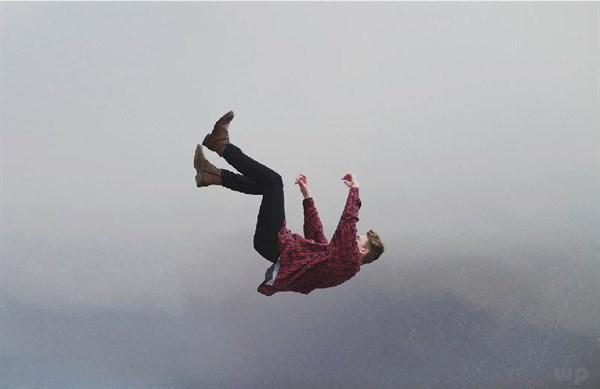
Al contrario, se una persona, invece di “andare al lavoro”, decidesse di rallentare dall'impulso e dall'ansia, la luce del sentiero di ciottoli l’avrebbe attirata, guidando la persona a una vita presa lentamente e dunque confortevole.
Ciononostante, il triangolo di tristezza è anche composto da un’altra scelta.
Insomma, dire che la decisione della vita che una persona deve fare nel triangolo di tristezza sia facile sarebbe assolutamente ridicolo, dato che ogni persona ha sempre l’opportunità di scegliere di cambiare la propria strada!
"Cammineràsolamente versoilcimiteroe moriràconilrimorsodi nonessersimailiberato dallagabbiadella società."
"Ognipersonaha semprel’opportunitàdi sceglieredicambiarela propriastrada!"

